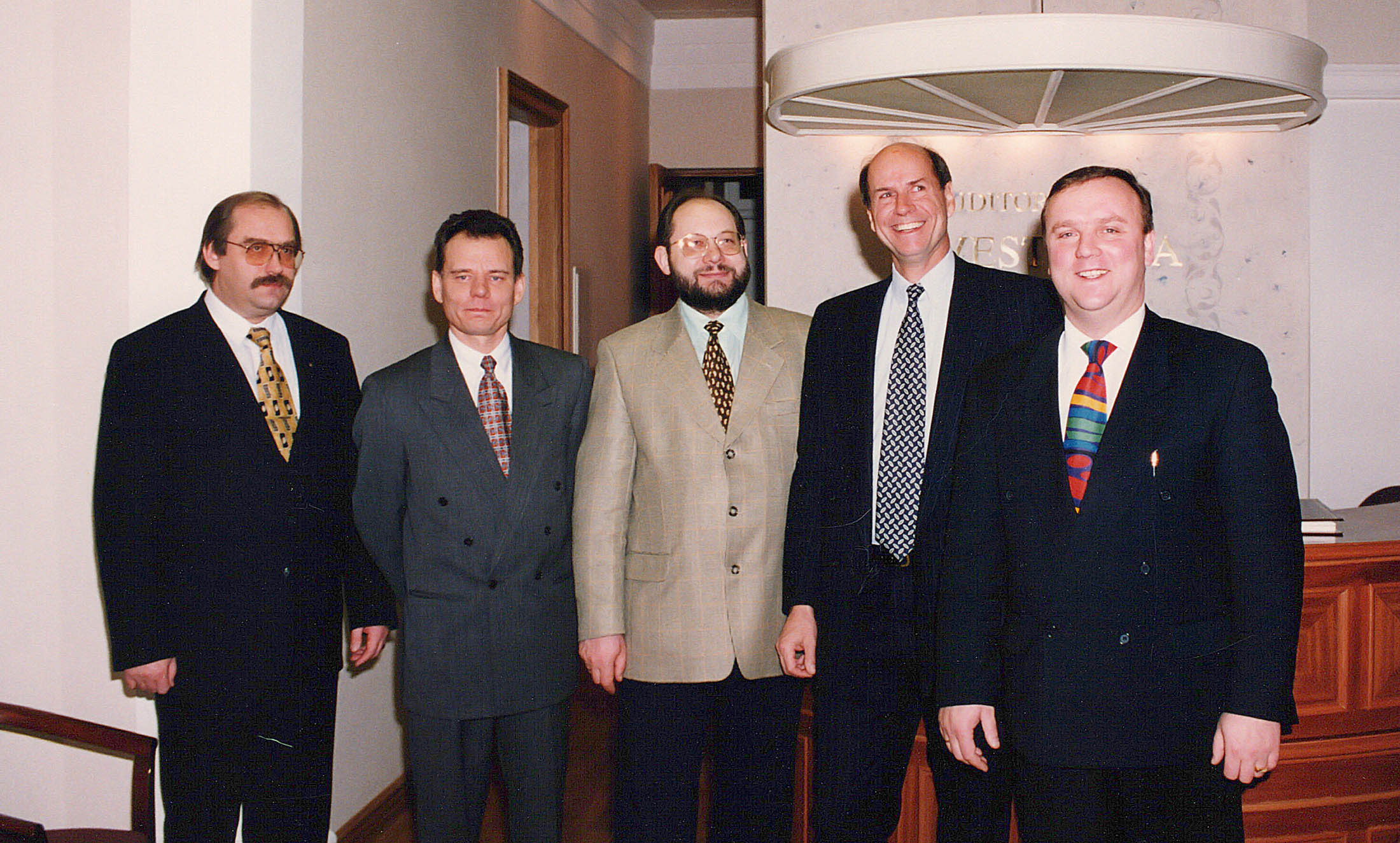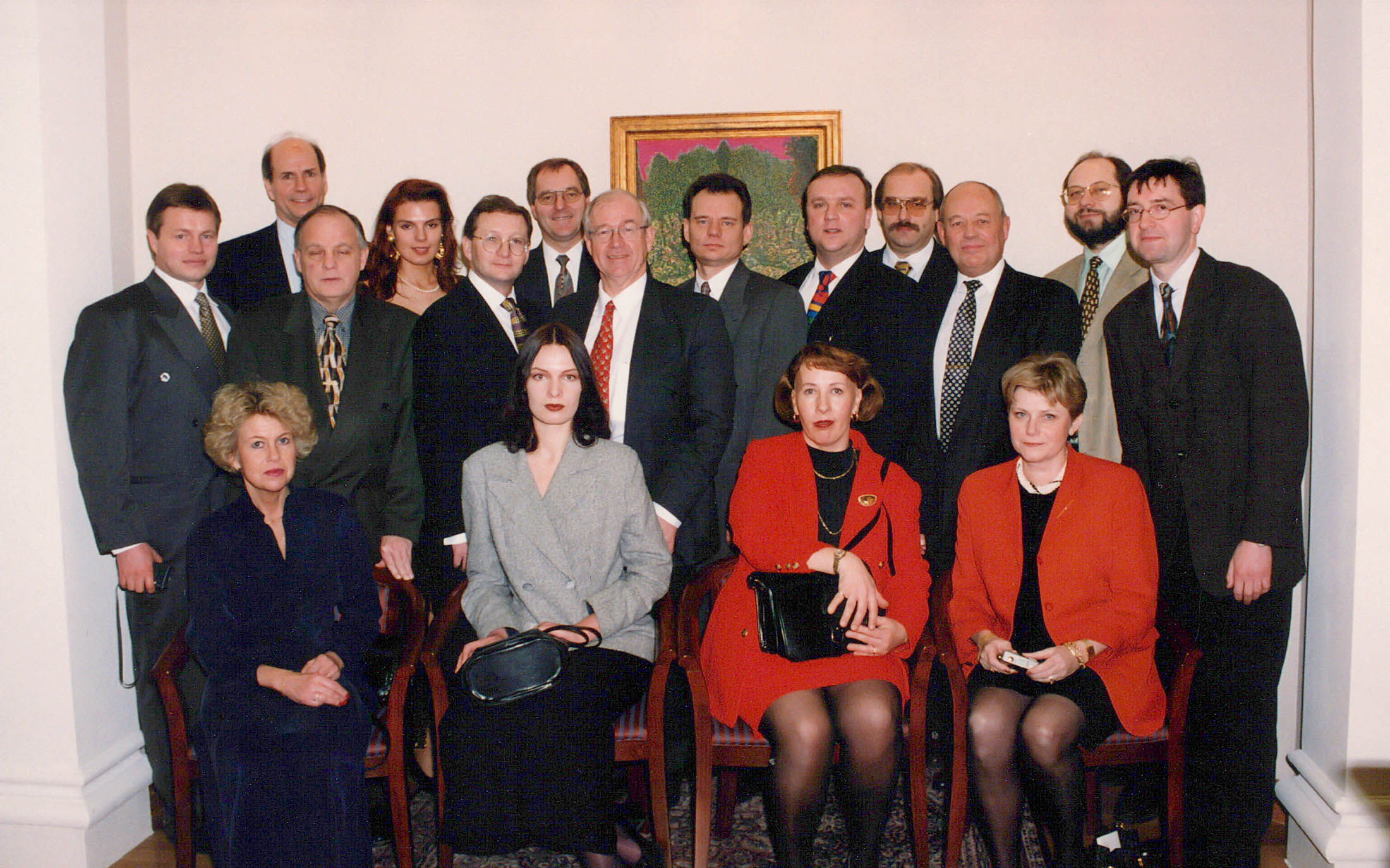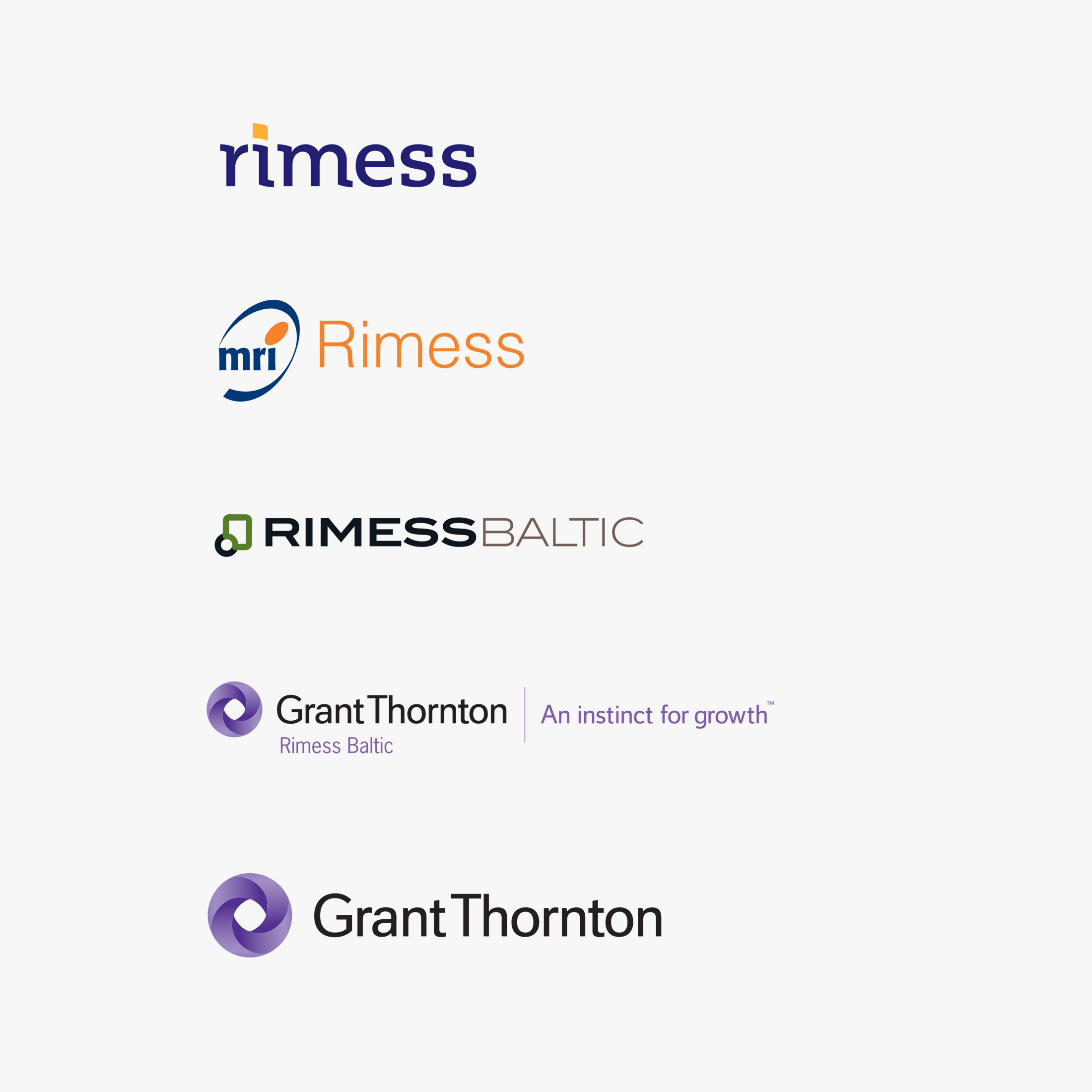Rimess thinks globally
The growth of Rimess in its first three years of operations was impressive. By 1995, the accounting firm, which initially had just two employees and an annual turnover of 160,000 kroons, had become an accounting and audit firm with around 20 employees and a turnover of 4.3 million kroons.
In the meantime, international audit firms such as KPMG, PriceWaterhouseCoopers, Deloitte and Ernst & Young had started to operate in Estonia. Mati Nõmmiste and Eva Veinberg felt that international know-how would be of great benefit to the rapidly growing Rimess. At the same time, the success of Rimess was also being noticed outside of Estonia.
There are various associations of audit, accounting and business advisory firms in Europe and around the world that bring together firms from different countries. When the Iron Curtain, which had been in place for five decades, came down in Eastern Europe in the early 1990s, international associations also started to look for expansion opportunities.
One was Moores Rowland International (MRI), then among the world’s ten largest international accounting firms, which contacted Rimess from its European unit in early 1995. This initial contact seemed promising, and in early spring of the same year, Poul Erik Vennekilde, a member of the board of MRI Europe, arrived in Tallinn from Denmark to get to know the Estonians and their company. However, before meeting Nõmmiste and Veinberg, Vennekilde had a small mishap. The office of Rimess was located in the Narva Café building on Narva Road, which was mainly home to apartments, not offices. Vennekilde ended up at the wrong door and was confronted by an elderly Russian-speaking woman who, because of the language barrier, understood neither who he was nor what he wanted. Eventually, hearing the name ‘Rimess’, she realised where the stranger wanted to go. Nõmmiste explains: “This agitated lady called our office and demanded that we immediately remove the foreigner who’d turned up at her front door!” he laughs.
Things went much more smoothly from that point onwards: Vennekilde, Nõmmiste and Veinberg found that Rimess and MRI had common interests. The Estonians soon received an invitation to the MRI Europe conference in Denmark that May. There, a cooperation agreement was signed, making Rimess a correspondent member of MRI. This was followed by full membership in 1999 which, among other things, gave Rimess the right to add MRI to its name.
Meeting of the Baltic member companies of MRI in around 1996. From left: Mati Nõmmiste from Estonia, Dainis Tunsts from Latvia, Juozas Kabašinskas from Lithuania, Jérôme Adam (Head of European Region) and Andris Denins from Latvia.
The close relationship and friendship between Nõmmiste, Veinberg and the later partners of Rimess with Jérôme Adam, then head of MRI Europe, also started from MRI. Adam, who visited Rimess for the first time in October 1995, remembers that MRI had selected a couple of companies in Estonia as potential partners, but Rimess was the best of them and so were asked to join. Rimess was also the launch pad for MRI’s expansion into the other Baltic countries. “Mati was a great help in recruiting member companies for MRI in Latvia and Lithuania, because he knew the local conditions,” says Adam, who was a consultant for Rimess, and later for Grant Thornton Baltic, from 2007-2021.
Partner Artur Suits highlights the three pros for Rimess of becoming a member of the MRI network. “Firstly, it was an international brand, which increased our visibility and credibility on the market,” he explains. “Secondly, we gained access to international know-how and attended MRI conferences and training events. And thirdly, our clients started to do business outside of Estonia, and with the help of our colleagues in the MRI network we were able to serve them very smoothly. As such, membership of the network allowed us to gain access to companies that would otherwise have been unreachable.”
A prime example of how looking at the wider world can help a company develop is Genadijus Makuševas, the Lithuanian who owned Renovacija UAB, an audit firm which merged with Rimess in 2007. “In the past, new trends would take five or so years to reach the Baltics, then two or three years, but now there’s no difference,” he says. “That’s why it was very useful at the time to see how things were being done elsewhere. I remember that in 2008 we went to Ireland with the Lithuanian Association of Auditors and ended up in this tiny town. There were only 200 or 300 houses there, but also a small bank office and as many as six accounting firms. We realised that this was a new trend: companies were giving up on hiring accountants and were outsourcing their accounting. That’s how it went, even though Lithuanian companies didn’t initially embrace that way of thinking at all. That’s why our clients in the beginning were foreign companies, but gradually we started to attract local ones as well.”




